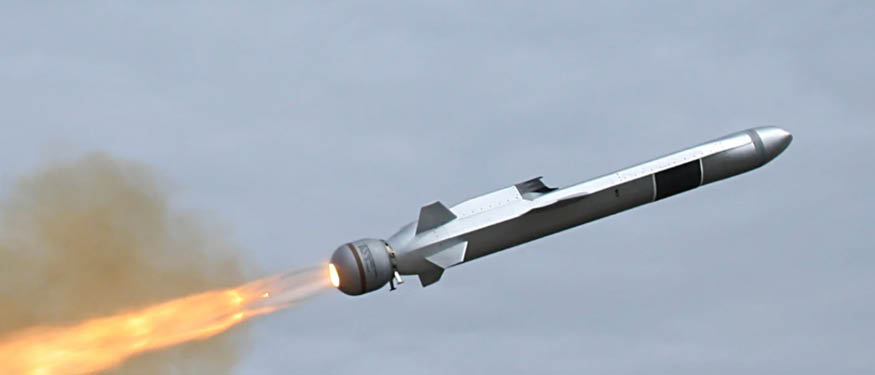The proposed Draft Law on Amendments and Supplements to the Law on Games of Chance brings several important changes, certain new legal solutions as a result of the needs of practice and market development, harmonization of the text of the law with technological development in this area, but also introduces new obligations to organizers and significantly increase in fees for obtaining approval and for organizing of games of chance.
The current Law on Games of Chance was adopted in 2020 and is harmonized with international standards and EU directives in the field of games of chance and prevention of money laundering and financing of terrorism. The Draft Law on Amendments to the Law on Games of Chance has now been published, which, in addition to language and technical corrections and harmonization, brings several important changes, new legal solutions, introduces new obligations and restrictions, as well as a significant increase in fees (hereinafter: Draft Law).
In accordance with the explanatory notes to the Draft Law, the current provisions of the Law on Games of Chance are simplified and more precise, some new obligations and restrictions are established for organizers with the aim of improving control and social responsibility, and new terms are introduced. For the first time, the transfer of the right to organize games in the case of status changes with the organizer and the issuance of approval and conditions for legal entities that provide services of receiving top-ups at the registration account of players registered for online games of chance have been regulated.
At the same time, the amount of fees for obtaining approval and for organizing games of chance is increasing significantly. The proposed changes will lead to an increase in the organizer's costs, and on the other hand, a significantly higher inflow of funds into the budget of the Republic is expected.
As life is always faster and more inventive than the law, and in accordance with the rapid growth of the games of chance industry and technology, there was a need to introduce new terms and define new concepts already established in the practice of games of chance, so that the Draft Law defines for the first time the following: bonus, betting machine, ticket, tournament, registration account, promotional account, player verification, stake confirmation, QR code, jackpot and jackpot system, multi-slot machine and determines new measures of responsible organization of games in the form of self-exclusion or self-limitation.
When participating in games via means of electronic communication (online games of chance), self-exclusion allows the player to voluntarily disconnect, permanently or for a certain period (not shorter than 24 hours) or to limit the maximum amount of payment or loss or to activate a ban on access to his user account. On the other hand, the obligation of the organizers shall be established to provide the Games of Chance Administration with data on players who have self-excluded, and bylaws will be adopted that will prescribe the technical procedure and method of data exchange with the Games of Chance Administration (hereinafter: the Administration).
In order to improve the control system, raise the level of social responsibility towards participants and stimulate cashless payment, the new restrictions that are prescribed are prohibitions on receiving payments and making payments in cash except at the registered pay-in-pay-out desk, in the slot club, as well as at the payment facility for top-ups of registration account of players.
Direct transfers between registration accounts of players and the transfer of funds from someone else's bank account to a registration account or from a registration account to another's registration account or to another's bank account are also prohibited. Until now, there was no limit for cash payments, and now a maximum amount of cash payments from players of up to 100,000 dinars is being introduced, i.e. 100,000 dinars for pay-out to a player for online games, and that is per one player per month in all betting shops of the organizer who has approval for online games of chance. The transfer of funds from betting machines to the player's registration account in the organizer's betting shops is also forbidden.
A ban on organizing online games of chance in which players play against each other (Texas hol'dem poker, etc.), organizing tournaments outside the casino, and organizing jackpots contrary to the law has been introduced. The prior consent of the Administration will be required for the organization of the jackpot, and the procedure, documentation, conditions, and manner of organizing the jackpot must be regulated by a new by-law.
The Draft Law introduces the consent of the Administration for organizing tournaments in casinos and defines the procedure for obtaining consent. A novelty is also the opportunity for the Administration to in real-time monitor video surveillance in the casino through a link, which the organizer is obliged to provide.
Fees for obtaining permits and approvals have been significantly increased. There is a double increase in license fees for casinos, as well as licensing fees for slot machines and betting.
The fee for organizing games in the casino is determined in relation to the type of games, especially for the tournament, and when it comes to the fee when participants play against the casino, a minimum monthly amount has been introduced that is not less than the product of the amount of 2,000 EUR and the largest number of registered tables for games during the month.
The fee for organizing games on slot machines, instead of 10%, is now 15% on the basis, and shall not be less than the product of the amount of 100 euros and the highest number of registered machines during the month. The fee for betting cannot be less than the product of the amount of 1,000 euros and the largest number of registered betting shops.
In the case of online games, the amount of the deposit to ensure the payment of winnings has been increased from 300,000 to 500,000 euros, while the amount of the risk deposit in the cashier has not been changed. The approval fee will be 10,000 euros per month instead of 2,500 euros. The fee for organizing is 15% of the base, or 25% for games in which players play against the organizer, while the minimum total amount of the fee cannot be less than 20,000 euros per month.
The article related to the ban on the use of the word casino has been amended. In the current Law on Games of Chance, it was clear that the root of the word casino can in any case only be used by organizers of games in casinos. It is now specified that the word casino, synonyms, translations, and derived words can be used in the name of the organizer, inside the building, and outside the building only by those organizers who have a valid casino license. It is unclear whether this ban now applies i.e. does not apply to the use on the websites of the organizer of online games of chance.
Regarding the organization of games on slot machines and betting, restrictions are introduced for serving food and alcoholic beverages in slot clubs and betting shops, and only low-alcohol beverages with less than 5% volume are allowed. It is forbidden to have a direct connection between the gaming facility with the area where food and drinks are served.
New legal solutions are being introduced here as well in terms of video surveillance of slot machines or pay-in-pay-out desks, entrances to the facility, and the cash register, which the Administration will be able to monitor in real-time via the provided link.
The Draft Law also specifies which educational institutions are subject to the minimum distance from slot clubs or betting shops and specifies all institutions attended by children, minors, and young adults up to the age of 19. As proof of that distance, in addition to the certificate of the Republic Geodetic Institute, it will now be necessary to provide the opinion of traffic experts.
For the first time, the draft Law introduces the obtaining of prior consent for a legal entity that provides services of receiving top-ups of the registration account of a player registered for online games and prescribes the conditions that such a legal entity or entrepreneur should fulfill (certificates about the distance of the facility at least 200 meters from educational institutions, certificates of the authorized laboratory for the information system, evidence of the ownership structure, etc.) It will be necessary to adopt new by-laws that will regulate the conditions, the manner of fulfillment of the requirements, and the manner of data exchange with the Administration. Payment institutions licensed by the National Bank are exempt from these provisions because they are considered to be already bound by the Anti-Money Laundering Act, and these changes will affect mostly business units such as gas stations or tobacco stands when they provide such services.
A change in the capital structure of the organizer of special games on slot machines, betting, and online games is subject to the prior approval of the Administration. Along with the request for approval, it will be necessary to submit proof of compliance with tax obligations and a certificate of criminal record for the intended purchaser of the shares
Also for the first time (if we exclude certain prohibitions that had already been prescribed by the Law on Games of Chance, but without effects or real measures), the Draft Law has now addressed the perennial problem of organizing games of chance by foreign organizers and participation in foreign games of chance. It is introduced, as a measure that the Administration can take in the case when an unregistered entity (foreign person) organizes online games, the authority of the inspector to make a decision banning those foreign games and to deliver it to the competent authority in order to prevent payment transactions by banks and access to the Internet address by blocking the IP address by the operator of electronic communications. In addition, the Draft Law completely changes the article related to the measures of inspection supervision and tightens the measures in case of established irregularities, failure to remove them, as well as in the case of underage gambling.
Penal provisions have been expanded, i.e. new offenses are foreseen for the violation of newly established obligations, i.e. new provisions envisaged by the Draft Law.
If the Draft Law is adopted, the changes will begin to be applied after 30 days from the date of its entry into force. By-laws should be adopted within 120 days from the date of entry into force, and the organizers will have a period of 180 days from the date of implementation to adjust their business to the new obligations, except for the ban on serving alcoholic beverages, where the deadline is the first January 2026. The increased fees are due as early as the first day of the following month from the day of the start of implementation.
The proposed Draft Law is not a mere harmonization of regulations but introduces serious novelties, new obligations for organizers, and several new legal solutions arising from the needs of practice and market development and harmonizes the text of the law with technological development in this area. It significantly increases the fees that organizers will pay, contributes to a significant increase in budget revenue, improves control and supervision over the organizer, and establishes a greater degree of social responsibility. It remains to be seen, after the public hearing that lasted until September 30, 2024, whether there will be any further changes to the Draft Law, as well as during the procedure of its enactment in the National Assembly.
By Jelena Stankovic Lukic, Partner, JPM & Partners
















